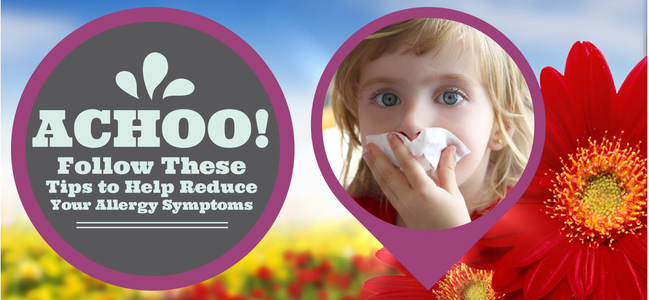Tips for Beating the Sneeze During Allergy Season
Published by Jason Hite on Jun 13, 2014

Seasonal allergies can be a real challenge for a lot of people. Some people, like myself, just have seasonal allergies and others are plagued all year round with these terrible symptoms. Seasonal allergies are commonly caused by different types of pollen being produced by seasonal plants, grasses and trees. Some areas are worse than others. I live in Florida where there is almost always something in bloom. This makes it very difficult to remain allergy symptom free.
I've put together a list of some best practices for keeping the allergens at bay and to slow down the sneezing and sniffling.
- During the seasons that effect your allergies the most, keep your windows and doors closed as much as possible. Leaving these open for the purpose of fresh air or cooling off the house will only let allergens that are effecting you into the house.
- Get a good vacuum and use it often. You would be surprised at how many allergens build up in the carpet in a short amount of time. If you have hardwood floors or tile, clean it often too. Dust and allergens will settle on these hard surfaces and are easily stirred up just by walking through the space.
- If you have pets that spend time outdoors, bath them regularly, animal hair is a magnet for all types of allergens, not to mention the animals own dander. Be cautious of bathing your pet too often though. Their shin is sensitive and bathing too often can cause them irritation. Consult your veterinarian about how often you can bath your pet.
- Change your bed clothes often. We carry around these allergens on our bodies and in our hair from being outdoors. These are transferred to your pillows, sheets and comforters when we go to bed at night.
- Wash your hands often as well. I know this should be a common sense, but not everyone washes there hands when they should. You pick up allergens on your skin and then when you rub your face or nose the problems just get worse.
- Last but not least, change the air filter in your heating and cooling system about every 30 days in the seasons that you have the most trouble. All the air we breathe in our homes passes through these air filters multiple times during the day. What a great opportunity to filter out what makes us sniffle and sneeze. Make sure you choose an air filter of at least a MERV 8 rating. Anything less isn't going to help much with allergy symptoms. For more information on how often to change your air filter, visit Air Filter Change Frequency.
I hope you have found these tips helpful and are able to reduce the severity of your allergy symptoms. I employ all these best practices and they have helped me breathe easier and greatly reduced my allergy symptoms.

